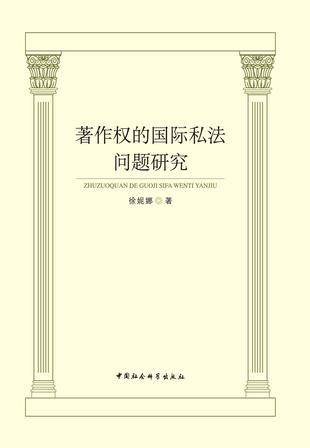内容简介
作者简介
目录
With arrival of knowledge-based economy society and acceleration of globalization,knowledge becomes to be the most important property in the society.There is a trend towards global integration of rules of knowledge control,i.e.the system of intellectual property rights.The developed countries,so as to protect its own economic interests,impose various models and standards regarding globalization,especially the protection standards of intellectual property rights,upon the developing countries.And the developed countries require the developing countries to exercise high-level protection on intellectual property rights.The developed countries actively promoted the execution of TRIPS and set the standards of global integration for intellectual property rights protection.Afterwards,the developed countries are insatiable and,by the means of bilateral trade agreements and regional trade agreements,etc.,they set requirements on intellectual property rights protection with higher standards,wider scope and stronger validity than TRIPS.Intellectual hegemony sweeps globally.In the meantime,the circle of legal theory pays attention on WTO laws from the perspective of human rights and questions its legitimacy.Therefore,the author tries to research on TRIPS and TRIPS-plus from the perspective of intellectual hegemony and hopes to find out countermeasures for developing countries.This book is divided into exordium,main body and conclusion.It is made up of seven parts.The first part is exordium which introduces research background,research significance,status quo of research at home and aboard,basic structure of this dissertation,research means,innovative points,etc.The second part is Intellectual Hegemony Protrudes and Interpretation on its Basic Issues.Firstly,this part discusses expansion of intellectual property rights under the background of globalization resulting in intellectual hegemony and points out that TRIPS is the starting point of intellectual hegemony and TRIPS-plus is further development of intellectual hegemony.Then,this part interprets the basic issues of intellectual hegemony,including defining the intellectual hegemony,analyzing its characteristics,discriminating between intellectual hegemony and similar definitions,such as intellectual property rights misuse,intellectual property rights malpractice,intellectual property rights monopoly,etc.The third part is Standards of Legitimacy on International Intellectual Property Right System.Via combing through standpoints on legitimacy by two modern western jurisprudential schools,i.e.natural law school and positive law school,this part illustrates historical transformation of the definition of legitimacy,interprets on legitimacy and puts forwards that legitimacy is mainly embodied by legality and legitimacy is legality in ultimate meaning.Then,this part sets the subjective criterion and objective criterion of legitimacy.On the basis of such criterion,this part discusses the legitimacy criterion of international intellectual property rights system from the perspective of epistemology.This part finally concludes that the subjective criterion of legitimacy of international intellectual property rights system is that democratic consultation must meet three conditions,that is,representativeness,transparency and non-dominance.And the objective criterion of legitimacy of international intellectual property rights system is global information justice.The fourth part is Manifestations of Illegitimacy of Intellectual Hegemony(Ⅰ)—Discuss from the Perspective of Subjective Criterion of Legitimacy of International Intellectual Property Rights System.This part outlines the execution process of TRIPS,evaluates such execution process by the subjective criterion of legitimacy of international intellectual property rights system and finds out that there is no representativeness during the negotiation on TRIPS and the negotiation process is on basis of wrong information and dominance.Based on outlining of execution of TRIPS-plus,this part evaluates such negotiation process by the subjective criterion of legitimacy of international intellectual property rights system.The author finds out that the developed countries play a dominant role,taking advantage of its power and global influence.And the FTAs executed under negotiation dominated by power are not transparent and fails to satisfy the requirements of representativeness and non-dominance.Execution of TRIPS and TRIPS-plus fails to meet the subjective criterion of legitimacy of international intellectual property rights system.The fifth part is Manifestations of Illegitimacy of Intellectual Hegemony(Ⅱ)—Discuss from the Perspective of Objective Criterion of Legitimacy of International Intellectual Property Rights System.From the perspective of global information justice,the author deeply analyzes the illegitimacy of the relevant system regarding patent under TRIPS and TRIPS-plus.TRIPS puts medicine under protection,protects new varieties of plants by the means of intellectual property rights,ambiguously stipulates the protected objects which are advantageous to the developing countries and does not protect superior resources of the developing countries.All of above is the concentrated expression of intellectual hegemony.U.S.FTAs reduces mechanism elasticity of TRIPS,adds stipulations regarding protection of intellectual property rights and expands the intellectual property rights protection to new areas,all of which is further development of intellectual hegemony.The sixth part is China Copes with Intellectual Hegemony.This part firstly analyzes interventions in legislation on and enforcement of intellectual property rights in China.Then,this part puts forwards according countermeasures against intellectual hegemony from the standpoint of China and from international and domestic aspects.From international aspects,the author points out the fundamental principles and basic views which shall be adhered to,strategic policies and specific strategies which shall be taken,etc.From domestic aspects,the author puts forwards that trinity defense system by nation,enterprises and academic circle shall be built;the legislation in Chinese traditional resources protection shall be speeded up;effectiveness of enforcement system of intellectual property rights shall be strengthened.The last part is conclusion which summarizes the main viewpoints of this book.Key Words:Intellectual Property Right;Intellectual Hegemony;TRIPS;TRIPS-plus;Legitimacy
全部显示∨
雷朝霞(1976.12—),女,陕西西安人,法学博士,现就职于西藏民族大学法学院。1998年7月毕业于西北大学法律系,获法学学士学位;2004年7月毕业于西北大学法学院,获法学硕士学位;2012年12月毕业于重庆大学法学院,获法学博士学位。主要研究方向为知识产权法,曾在China Legal Science、《西北大学学报》(哲学社会科学版)等刊物发表学术论文十余篇,参与编写《经济法》教材一部,主持、参与多项研究课题。
全部显示∨
第一章 绪论第一节 研究背景和研究意义一 研究背景
二 研究意义
第二节 国内外研究现状综述一 国内研究现状综述
二 国外研究现状综述
第三节 基本结构与研究方法一 基本结构
二 研究方法
第二章 知识霸权的凸现及其基本问题解读第一节 全球化背景下知识霸权的凸现一 全球化概说
二 全球化背景下知识霸权的凸现:TRIPS、TRIPS-plus协议的缔结
第二节 知识霸权的基本问题解读一 知识霸权的概念界定
二 知识霸权的法律特征
三 知识霸权与相关概念之辨析
小结
第三章 国际知识产权制度正当性的标准第一节 正当性的概念解析一 自然法中的正当性
二 法律实证主义的合法性
三 正当性概念的正确诠释
第二节 正当性的标准一 正当性的主观标准
二 正当性的客观标准
第三节 国际知识产权制度正当性的标准一 国际知识产权制度正当性的主观标准:代表性、透明度、非支配性
二 国际知识产权制度正当性的客观标准:全球信息正义
小结
第四章 知识霸权的非正当性表现(Ⅰ)——以国际知识产权制度正当性的主观标准为分析视角第一节 TRIPS协议缔结过程的非正当性一 TRIPS协议的缔结概述
二 TRIPS协议缔结过程中“绿屋会议”的民主赤字问题
三 TRIPS协议缔结过程中的信息不对称:透明度缺乏
四 TRIPS协议缔结过程中的胁迫型经济外交政策:支配性问题
第二节 TRIPS-plus协议缔结过程的非正当性一 TRIPS-plus协议的缔结概述
二 TRIPS-plus协议缔结过程中的代表性问题
三 TRIPS-plus协议缔结过程中的透明度问题
四 TRIPS-plus协议缔结过程中的支配性问题
小结
第五章 知识霸权的非正当性表现(Ⅱ)——以国际知识产权制度正当性的客观标准为分析视角第一节 TRIPS协议中与专利相关制度的非正当性一 药品专利制度对发展中国家公共健康的危害
二 植物新品种的知识产权保护对发展中国家粮食安全的威胁
三 对发展中国家有利规定的有意模糊
四 对发展中国家优势资源的保护缺位
第二节 TRIPS-plus协议中与专利相关制度的非正当性一 专利权客体的扩张——可专利性及于动物及植物
二 专利保护期限的延长
三 有利于发展中国家的弹性机制的削减
四 撤销专利权事由的限制
五 未公开资料的专有权保护
六 药品上市审批与专利制度的挂钩
小结
第六章 中国对知识霸权的应对第一节 知识霸权对中国知识产权制度的影响一 知识霸权对中国知识产权立法的干预
二 知识霸权对中国知识产权执法的干涉
第二节 中国在国际层面对知识霸权的应对一 中国应坚持的基本原则及基本主张
二 中国应采取的战略方针及具体策略
三 中国应积极推动国际知识产权立法机制的民主化改造
四 中国应积极推动国际知识产权实体规则的变革与修正
五 中国应高度警惕和防范TRIPS-plus条款
第三节 中国在国内层面对知识霸权的应对一 建立国家、企业、学界三位一体的防御体系
二 加快中国传统资源保护的立法步伐
三 加强知识产权执法机制的长效性
小结
结论
主要参考文献
后记


